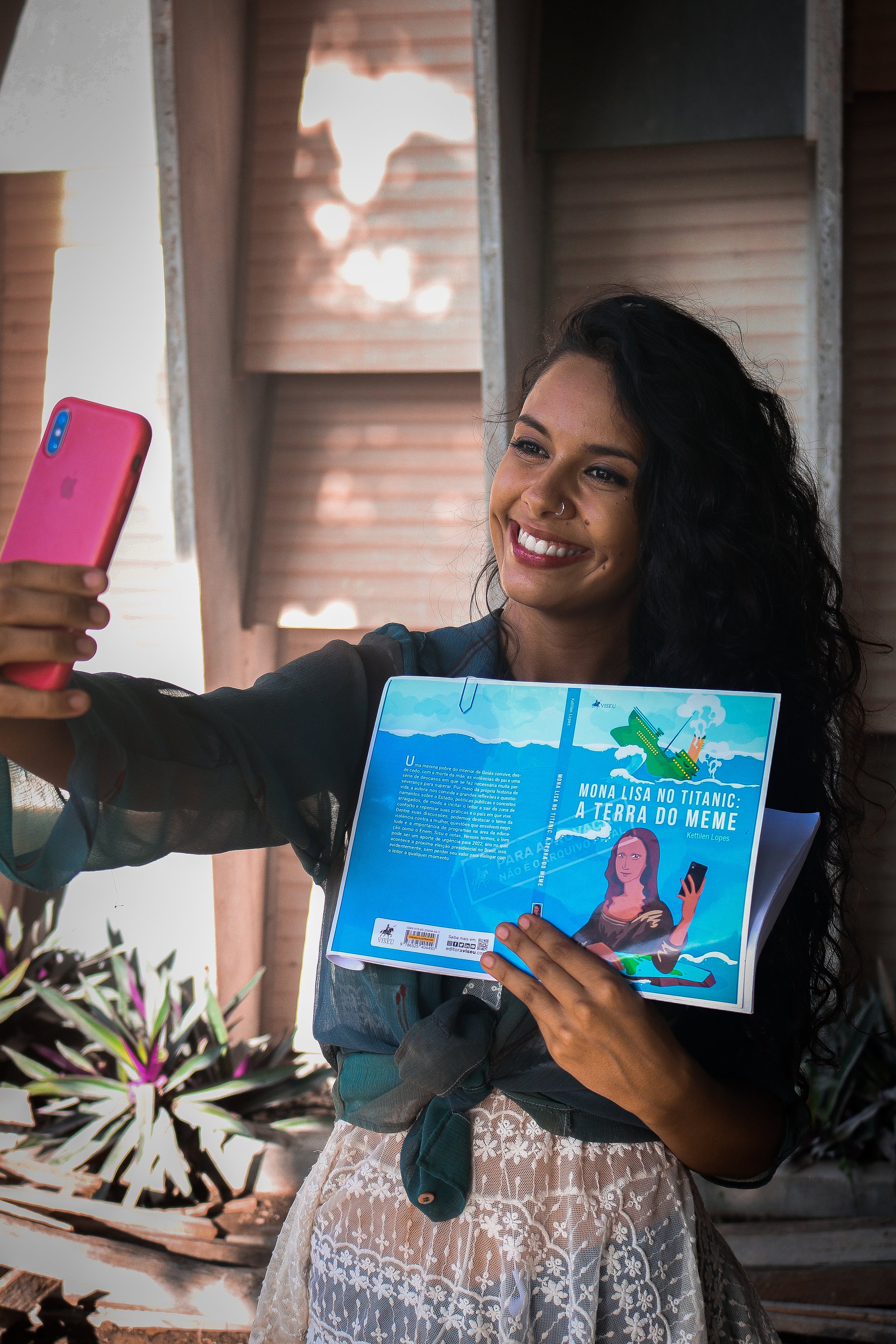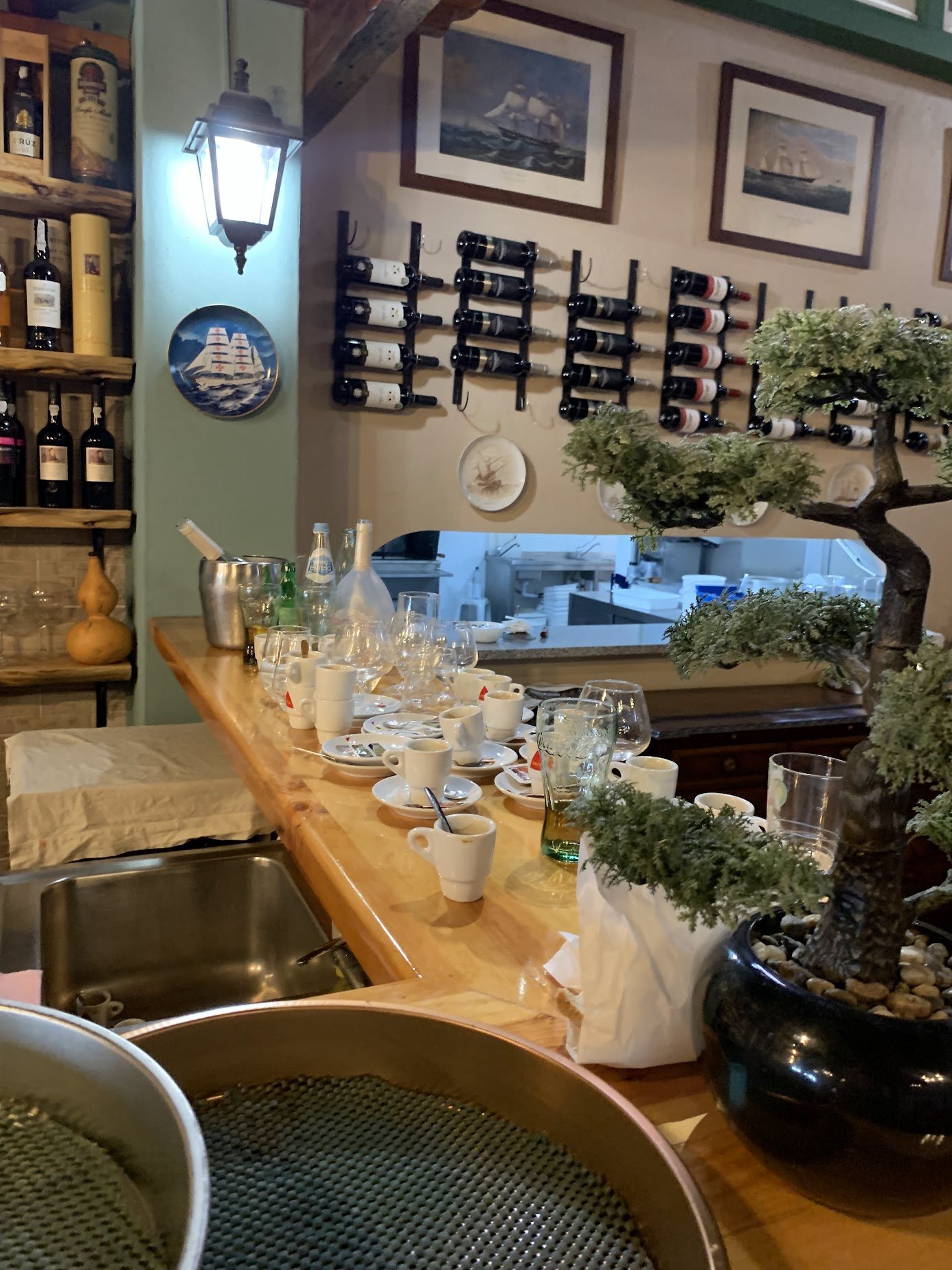Book 1
Mona Lisa on Titanic: The Land of Memes
The Mona Lisa is both you and me. How many times do we not know whether to laugh or cry? It would be nice to smile and think everything is simple, and perhaps it is desirable to simplify things on a personal level, but not on a social one.
I wrote my first book at 19 years old. It was 2018, and I was at university when the person who attempted a coup against the state was elected president.
At that moment, I was living a life completely different from the one I had in my childhood, thanks to the opportunities I received through public policies. And that person rising to power represented a threat to those opportunities, which no longer concerned me, but others who wouldn’t have the same possibilities I had. These opportunities didn’t come from my family, but from a public entity ensuring a broader horizon for those who have been disadvantaged for many generations.
I grew up in a house with only men, and I learned to enjoy studying after starting school at the age of 5, thanks to a female teacher. She was the only female figure I had in my daily life. It was a public school, and that teacher was a representation of the state. I started working at 15 years old at Banco do Brasil through an apprenticeship program. When I decided to study on the other side of my country, I was only able to do so thanks to the death pension from my mother, which is part of the public social security system.
I came from a small town with 12,000 inhabitants, didn’t speak English, and decided to study international relations. — I’m a big dreamer girl. Then, when I managed to get into a public university, I only achieved that because of fair competition with people from similar backgrounds, who had the same education I had. This was thanks to programs we have in Brazil called Enem, Sisu, and Cotas.
My book is an attempt to tell this story to raise awareness and then talk about what truly matters: public policies that concern the collective. It is both intimate and social. It is my story and my family’s story, but it is not just about me. These are facts, these are data, and this is my country—what I mean, my people. The same little girls as I once was.
Below are fragments of my new books
Book 2
Angel-bela: A Breath of Death
“From Ângela
Isabela was born
There is an act that unites mother and daughter: the capacity of self-knowledge. One moves by the breath of life, the other by the breath of death. One comes being that which wasn't, the other comes to be what she is. Time, moment, different possibilities.
Angela doesn't know what she wants, she says and unsays, navigates in the possibility of what is not, there is life at the end of life.
Oh, Isabela, so young! Such livingnesses to the death's gleam. Is there a fear? Of not existing? Of not living?
Isabela has sense on what she says, she follows the logic, including the obvious. She has an objective. She thinks she has objectives. How many objectives inside objectives, and, in the end, will there be one?
Her mother was killed. It’s not possible to know the beauty of cruelty, it was 21.
It’s known that death comes and life maybe becomes lighter. Light and profound. Isabela wants to have two faces.”
Book 3
Powder house
“Did the girl come from Casa da Pólvora?” the old man asked, pointing his finger right in my face.
Two steps away, behind the bar counter, with the restaurant open and people coming in for lunch, he kept going:
— I regret calling this girl so much!
Me.
Not needing the third person.
Then he demanded my signature on something I refused to sign until I was paid what I was owed.
Finger in my face, he kept repeating how much he regretted it. People were walking into the restaurant. There was a kind of hate in his voice, almost breaking into tears, like a spoiled child throwing a tantrum.
In that hateful voice, saying I came from Casa da Pólvora, he demanded my documents.
Documents they had never cared about before. A signature. My name. A name that had never mattered to them before.”


